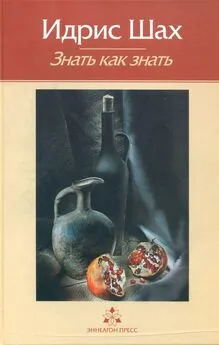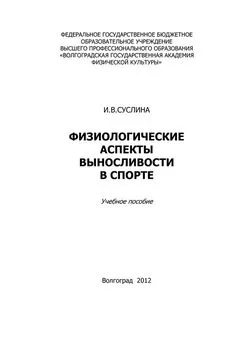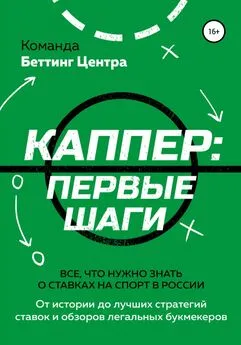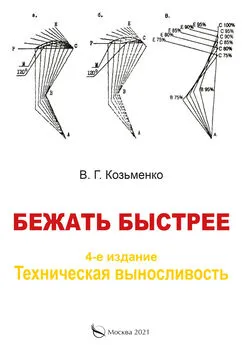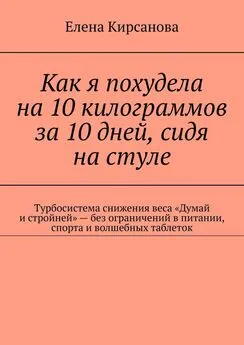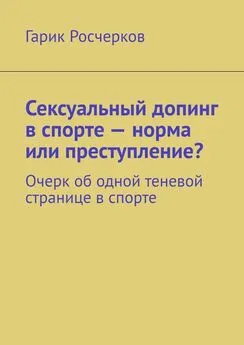Моник Райан - Питание в спорте на выносливость. Все, что нужно знать бегуну, пловцу, велосипедисту и триатлету
- Название:Питание в спорте на выносливость. Все, что нужно знать бегуну, пловцу, велосипедисту и триатлету
- Автор:
- Жанр:
- Издательство:Литагент МИФ без БК
- Год:2018
- Город:Москва
- ISBN:978-5-00117-453-0
- Рейтинг:
- Избранное:Добавить в избранное
-
Отзывы:
-
Ваша оценка:
Моник Райан - Питание в спорте на выносливость. Все, что нужно знать бегуну, пловцу, велосипедисту и триатлету краткое содержание
Книга предназначена для всех, кто занимается видами спорта на выносливость – бегом, плаванием, велоспортом, триатлоном – на любительском или профессиональном уровне. Также будет интересна тренерам и спортивным врачам.
На русском языке публикуется впервые.
Питание в спорте на выносливость. Все, что нужно знать бегуну, пловцу, велосипедисту и триатлету - читать онлайн бесплатно ознакомительный отрывок
Интервал:
Закладка:
Cox, G. R., et al. 2010. Race-day carbohydrate intakes of elite triathlete contesting Olympic-distance triathlon events. International Journal of Sport Nutrition and Exercise Metabolism 20 (4): 299–306.
Coyle, E. 2004. Fluid and fuel intake during exercise. Journal of Sports Sciences 22 (8): 39–55.
Coyle, E., et al. 2001. Low-fat diet alters intramuscular substrates and reduces lipolysis and fat oxidation during exercise. American Journal of Endocrinology and Metabolism 280 (3): E391–E398.
Crowe, M. J., et al. 2003. The effects of B-hydroxy-B-methylbutуrate (HMB) and HMB/creatine supplementation on indices of health in highly trained athletes. International Journal of Sport Nutrition and Exercise Metabolism 13 (2): 184–197.
Currell, K., and A. E. Jeukendrup. 2008. Superior endurance performance with ingestion of multiple transportable carbohydrates. Medicine and Science in Sports and Exercise 40 (2): 275–281.
Davis, J. 1996. Carbohydrates, branched chain amino acids, and endurance: The central fatigue hypothesis. Gatorade Sports Science Exchange 9 (2).
Decombaz, J., et al. 1993. Effect of l-carnitine on submaximal exercise metabolism after depletion of muscle glycogen. Medicine and Science in Sports and Exercise 25: 733–740.
Decombaz, J., et al. 2011. Fructose and galactose enhance post-exercise human liver glycogen synthesis. Medicine and Science in Sports and Exercise, March 10 (Epub).
DeSouza, M. J., et al. 2010. High prevalence of subtle and severe menstrual disturbances in exercising women: Confirmation using daily hormone measures. Human Reproduction 25 (2): 491–503.
Dunford, Marie. 2006. Sports Nutrition: A Practice Manual for Professionals. Chicago: American Dietetic Association.
Fallowfield, J., et al. 1995. The influence of ingesting a carbohydrate-electrolyte beverage during 4 hours of recovery on subsequent endurance capacity. International Journal of Sport Nutrition and Exercise Metabolism 5: 285–299.
Febbraio, M. A., et al. 1996. Carbohydrate feedings before prolonged exercise: Effect of glycemic index on muscle glycogenolysis and exercise performance. Journal of Applied Physiology 81 (3): 1115–1120.
Fiala, K. A. 2004. Rehydration with a caffeinated beverage during the nonexercise periods of 3 consecutive days of 2-a-day practices. International Journal of Sport Nutrition and Exercise Metabolism 14 (4): 419–429.
Foster-Powell, K., and J. Brand-Miller. 1995. International tables of glycemic index. American Journal of Clinical Nutrition 62 (supplement): 871–893.
Gleeson, M., et al. 2004. Exercise, nutrition, and immune function. Journal of Sports Sciences 22 (8): 115–125.
Graham, T., and L. Spriet. 1996. Caffeine and exercise performance. Gatorade Sports Science Exchange 9 (1).
Grandjean, A. C., et al. 2000. The effect of caffeinated, non-caffeinated, caloric, and non-caloric beverages on hydration. Journal of the American College of Nutrition 19 (5): 591–600.
Green, H., et al. 1992. Altitude acclimatization and energy metabolic adaptation in skeletal muscle during exercise. Journal of Applied Physiology 73 (6): 2701–2708.
Haff, G. G., et al. 2000. Carbohydrate supplementation attenuates muscle glycogen loss during acute bouts of resistance exercise. International Journal of Sport Nutrition and Exercise Metabolism 10 (3): 326–339.
Havemann, L., et al. 2006. Fat adaptation followed by carbohydrate-loading compromises high-intensity sprint performance. Journal of Applied Physiology 100 (1): 194–202.
Hellsten-Westing, Y., et al. 1993. The effect of high-intensity training on purine metabolism in man. Acta Physiologica Scandinavica 149: 405–412.
Hulston, C. J., and A. E. Jeukendrup. 2008. Substrate metabolism and exercise performance with caffeine and carbohydrate intake. Medicine and Science in Sports and Exercise 40 (12): 2096–2104.
Hulston, C. J., and A. E. Jeukendrup. 2009. No placebo effect from carbohydrate intake during prolonged exercise. International Journal of Sport Nutrition and Exercise Metabolism 19 (3): 275–284.
Hulston, C. J., et al. 2009. Exogenous carbohydrate with glucose plus fructose intake during exercise. Medicine and Science in Sport and Exercise 41 (2): 357–363.
Ivy, J. L., et al. 1988. Muscle glycogen storage after different amounts of carbohydrate ingestion. Journal of Applied Physiology 64 (5): 2018–2023.
Ivy, J. L., et al. 1988. Muscle glycogen synthesis after exercise: Effect of time of carbohydrate ingestion. Journal of Applied Physiology 64 (4): 1480–1485.
James, A. P., et al. 1999. Muscle glycogen supercompensation: Absence of gender-related differences. European Journal of Applied Physiology 85 (6): 533–538.
Jentjens, R. L. P., et al. 2004. High oxidation rates from combined carbohydrates ingested during exercise. Medicine and Science in Sports and Exercise 36 (9): 1551–1558.
Jentjens, R. L. P., et al. 2004. Oxidation of combined ingestion of glucose and fructose during exercise. Journal of Applied Physiology 96 (4): 1277–1284.
Jeukendrup, A., et al. 1997. Carbohydrate-electrolyte feedings improve 1 hour time trial cycling performance. International Journal of Sports Medicine 18 (2): 125–129.
Jeukendrup, A. E. 2010. Carbohydrates and exercise performance: The role of multiple transportable carbohydrates. Current Opinion in Clinical Nutrition and Metabolic Care 13 (4): 452–457.
Jeukendrup, A. E., and E. S. Chambers. 2010. Oral carbohydrate sensing and exercise performance. Current Opinions in Clinical Nutrition and Metabolic Care 13 (4): 447–451.
Jeukendrup, A. E., and M. J. Gibala. 2009. Protein plus carbohydrate does not enhance 60-km timetrial performance. International Journal of Sport Nutrition and Exercise Metabolism 19 (4): 335–337.
Jeukendrup, A. E., and L. Moseley. 2010. Multiple transportable carbohydrates enhance gastric emptying and fluid delivery. Scandinavian Journal of Medicine Science in Sports 20 (1): 112–121.
Kang, J., et al. 1995. Effect of carbohydrate ingestion subsequent to carbohydrate supercompensation on endurance performance. International Journal of Sport Nutrition and Exercise Metabolism 5: 329–343.
Kenney, W. L. 2004. Dietary water and sodium requirements for active adults. Gatorade Sports Science Exchange 17 (1): 1–6.
Kimber, N. E., et al. 2002. Energy balance during an Ironman triathlon in male and female triathletes. International Journal of Sport Nutrition and Exercise Metabolism 12: 47–62.
King, D., et al. 1999. Effect of oral androstenedione on serum testosterone and adaptation to resistance training in young men. Journal of the American Medical Association 281 (21): 2020–2028.
Kirwan, J. P., et al. 1988. Carbohydrate balance in competitive runners during successive days of intense training. Journal of Applied Physiology 65 (6): 2601–2606.
Kovacs, E. M. R., et al. 2002. Effect of high and low fluid intake on post-exercise rehydration. International Journal of Sport Nutrition and Exercise Metabolism 12: 14–23.
Kreider, R., et al. 1998. Creatine supplement: Analysis of ergogenic value, medical safety, and concerns. Journal of Exercise Physiology 1 (1): 1–11.
Lambert, E., et al. 2001. High-fat diet versus habitual diet prior to carbohydrate loading: Effects on exercise metabolism and cycling performance. International Journal of Sport Nutrition and Exercise Metabolism 11: 209–225.
Lemon, P., et al. 1992. Protein requirements and muscle mass/strength changes during intensive training in novice bodybuilders. Journal of Applied Physiology 73 (2): 767–775.
Lemon, P, et al. 1995. Do athletes need more dietary protein and amino acids? International Journal of Sport Nutrition and Exercise Metabolism 5: S39–S61.
Loucks, A. B., and J. R. Thuma. 2003. Luteinizing hormone pulsatility is disrupted at a threshold of energy availability in regularly menstruating women. Journal of Clinical Endocrinology and Metabolism 88 (1): 297–311.
Macdermid, P. W., and S. R. Stannard. 2006. A whey-supplemented high-protein diet versus a high-carbohydrate diet: Effects on endurance cycling performance. International Journal of Sport Nutrition and Exercise Metabolism 16 (1): 65–77.
Madsen, K., et al. 1996. Effects of glucose, glucose plus branched-chain amino acids, or placebo on bike performance over 100 km. Journal of Applied Physiology 81 (6): 2644–2650.
Manore, M. M. 2002. Dietary recommendations and athletic menstrual dysfunction. Sports Medicine 32 (14): 887–901.
Mason, W., et al. 1993. Carbohydrate ingestion during exercise: Liquid versus solid feedings. Medicine and Science in Sport and Exercise 25: 966–969.
McConnell, G., et al. 1996. Effect of timing of carbohydrate ingestion during exercise performance. Medicine and Science in Sports and Exercise 28: 1300–1304.
Millard-Stafford, M., et al. 1992. Carbohydrate-electrolyte replacement improves distance running performance in the heat. Medicine and Science in Sports and Exercise 24: 940–943.
Millard-Stafford, M., et al. 2005. Recovery from run training: Efficacy of a carbohydrate-protein beverage? International Journal of Sport Nutrition and Exercise Metabolism 15 (6): 610–624.
Miller, S. L., et al. 2003. Independent and combined effects of amino acids and glucose after resistance training. Medicine and Science in Sports and Exercise 35 (3): 449–455.
Nicholas, C. W., et al. 1997. Carbohydrate intake and recovery of intermittent running capacity. International Journal of Sport Nutrition and Exercise Metabolism 7 (4): 251–260.
Nissen, S., et al. 1996. Effect of leucine metabolite B-hydroxy-B-methylbutyrate on muscle metabolism during resistance training exercise. Journal of Applied Physiology 81 (5): 2095–2104.
Parkin, J., et al. 1997. Muscle glycogen storage following prolonged exercise: Effect of timing of ingestion of high glycemic index food. Medicine and Science in Sports and Exercise 29 (2): 220–224.
Pascoe, D., and L. Gladden. 1996. Muscle glycogen resynthesis after short-term, high-intensity exercise and resistance exercise. Sports Medicine 21 (2): 98–118.
Paul, D. R., et al. 2001. Carbohydrate-loading during the follicular phase of the menstrual cycle: Effect on muscle glycogen and exercise performance. International Journal of Sport Nutrition and Exercise Metabolism 11 (4): 430–441.
Pedersen, D. J., et al. 2008. High rates of muscle glycogen resynthesis after exhaustive exercise when carbohydrate is co-ingested with caffeine. Journal of Applied Physiology 105 (1): 7–13.
Peters, E., et al. 1993. Vitamin C supplementation reduces the incidence of post-race symptoms of upper-respiratory-tract infection in ultramarathon runners. American Journal of Clinical Nutrition 57 (2): 170–174.
Pfeiffer, B., et al. 2009. The effect of carbohydrate gels on gastrointestinal tolerance during a 16-km run. International Journal of Sport Nutrition and Exercise Metabolism 19 (5): 485–503.
Pfeiffer, B., et al. 2010. Carbohydrate oxidation from a carbohydrate gel compared with a drink during exercise. Medicine and Science in Sports and Exercise 42 (11): 2038–2045.
Pfeiffer B., et al. 2010. Oxidation of solid versus liquid carbohydrate sources during exercise. Medicine and Science in Sports and Exercise 42 (11): 2030–2037.
Pfeiffer, B., et al. 2011. Carbohydrate oxidation from a drink during running compared with cycling exercise. Medicine and Science in Sports and Exercise 43 (2): 327–334.
Pizza, F., et al. 1995. A carbohydrate loading regimen improves high intensity, short duration exercise performance. International Journal of Sport Nutrition and Exercise Metabolism 5: 110–116.
Reed, M. J., et al. 1989. Muscle glycogen storage post-exercise: Effect of mode of carbohydrate administration. Journal of Applied Physiology 66 (2): 720–726.
Читать дальшеИнтервал:
Закладка:

